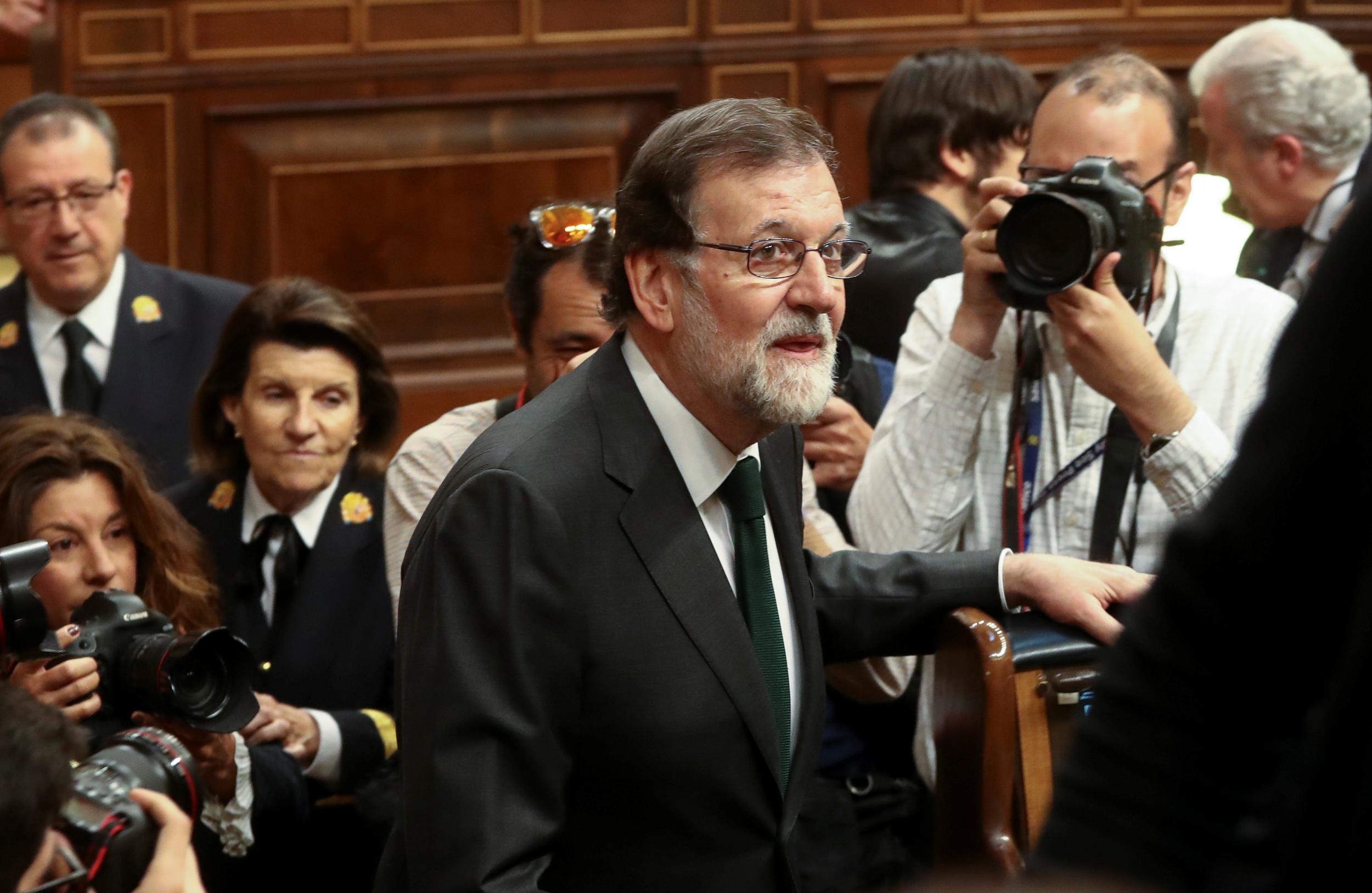What is the economic significance of the political turmoil in Spain and Italy?
Some argue that the eurozone crisis is back. Are they right?

Southern European politics has been in tumult this week.
The Spanish prime minister, Mariano Rajoy, was ousted on Friday by MPs in the wake of a corruption scandal.
He will be replaced by the socialist leader Pedro Sanchez, who will lead a precarious minority administration. One of the new government’s biggest challenges will be dealing with the intractable constitutional crisis of growing Catalan separatism.
Meanwhile, in Italy, the populist eurosceptic coalition between the anti-establishment Five Star movement and the far-right League will go ahead after all.
Political instability, particularly in Italy, alarmed financial markets this week. And there have been many claims from Brexiteers here in the UK that events in Italy expose the fundamental instability of the single currency and indeed the wider European Union.
Some argue that the eurozone crisis is back. Are they right? What economic lessons can we draw from the political strife of recent days?
What’s the economic significant of the Spanish change of government?
Both Italy and Spain were at the centre of the eurozone crisis in 2012, as their governments’ borrowing costs spiked to levels that threatened to force them to default.
Today Spain is in a stronger economic position than Italy. Its economy has grown by almost 14 per cent over the past five years. By contrast Italy’s has grown just 6 per cent.

Unemployment remains higher in Spain at 15.9 per cent versus 11.2 per cent in Italy. But it has been coming down faster in Spain.
The result of this relative economic improvement in Spain is that eurosceptism seems to be much less severe there than in Italy.
The Sanchez administration will be the weakest government in Spain’s recent history and new elections are pretty much certain before long. But all of Spain’s main parties are solidly pro-European, unlike in Italy.
How dangerous is Italy’s new coalition?
The important fact to bear in mind is that Five Star and the League backed down this week.
They agreed to a different, less provocative, choice of finance minister than the eurosceptic academic Paolo Savona, who has previously described the single currency as a “German cage” and whose appointment was vetoed by President Sergio Mattarella.
This compromise suggests that claims the leaders of the two parties were intent on forcing a constitutional crisis and fresh elections, where they would stand on an openly anti-European platform, were wide of the mark.
The Five Star leader Luigi Di Maio has rowed back from his calls for the Italian president, Sergio Mattarella, to be impeached. The view that Mattarella did not, in fact, grossly breach his constitutional powers by blocking the proposed finance minister seems to be increasingly accepted.
So is this crisis over?
That would be going too far. Savona has not been ditched entirely, but will be the coalition’s minister for European affairs.
The Five Star/League programme – which demands reform of the eurozone’s fiscal rules – is still likely to force a showdown with other member states and the European Commission. And some of the public comments by officials and politicians from Brussels and Germany have betrayed a cloth-eared complacency.
Consider the misjudged lecture from the Commission President, Jean-Claude Juncker, that that Italians need more “hard work” and “less corruption” and the inflammatory view expressed by the EU budget commissioner, Gunther Oettinger, that he hoped financial markets would “send a signal” to Italian voters about right way to vote next time (for which he has since apologised).
Unemployment in Spain and Italy remains unacceptably high, more than 10 years after the financial crisis.

The insurgent Spanish party, Podemos, might not be as eurosceptic as Five Star, but it is just as virulently opposed to domestic fiscal austerity measures enforced with the strong support of Brussels. And their programme calls for the 2006 Lisbon Treaty to be either revoked or curtailed. Podemos, only founded in 2011, are now the third largest party in the Spanish parliament.
And in Italy, the very fact that two parties such as Five Star and the League are in power in Rome – even if they have shown an somewhat unexpected ability to compromise this week – ought to serve as a wake-up call for the European Union that the economic functioning of the eurozone really does demand reform.
Join our commenting forum
Join thought-provoking conversations, follow other Independent readers and see their replies
Comments
Bookmark popover
Removed from bookmarks